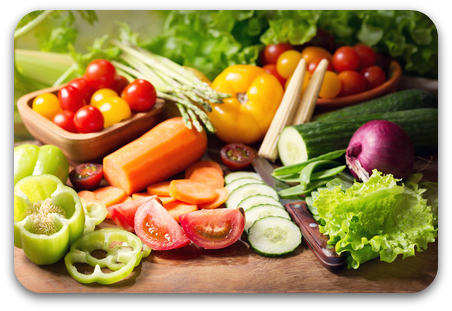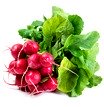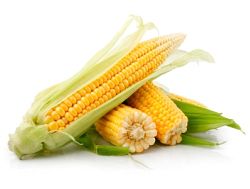Cooking and Eating in Flex Mode —
Quick, Easy, and Handy
Say hello to Flex Mode, a short-hand term I've coined for quick, easy, and flexible approaches to cooking (and eating), whether or not you're vegetarian/vegan. Most of us have enough to deal with as it is, without adding culinary complications.

True, within the context of plant-based cuisine, quick and easy may sound more like an
oxymoron than a new paradigm, but no worries. Those two and their good buddy flexibility can help you create sensational dishes and snacks that are also healthful...and that don't take hours to prepare. How many of us want to be shackled to the
kitchen, right?
Along with handy, another of their buddies, these attributes can greatly simplify your kitchen/eating life and also ensure your own good nutrition and that of your family and guests.
Flex Mode in Action
Since many of us deal with hassles already, we'd probably prefer not to encounter a bunch of them in the kitchen...or when we go out to eat. And this is the joy of flex mode (FM): if we're missing an ingredient or two, we substitute; when a recipe calls for more fat or sweetener than we want, we shave it down.
If we think there should be more of a particular ingredient, we make it happen...pretty much the way people did before the advent of cooking as Performance Art. Perhaps you cook that way yourself. For some of us, though, such an approach takes some guts, as we may be wedded to the idea that to cook, we've gotta have/follow recipes!
Sure, recipes can be a great help when you need something to be "just right" for a particular event. And they also can provide some wonderful ideas. BUT—marvelous dishes emerge from Flex Mode, as well.
Planning and Pre-Prep
For the FM approach to work, you'll need to do a certain amount of planning and advance preparation. That way, you'll have certain foods ready to eat and/or add to
a dish you're preparing. For example, when cooking grains and legumes,
foresighted vegetarians/vegans often make extra to freeze for quick
access later. When you're trying to figure out what's for dinner, those
frozen black beans, brown rice, quinoa, or barley could provide the basis of something delicious. Canned or "quick" versions of these can be useful, as well.

An inconvenient truth with regard to nutrition: if something nutritious isn’t pretty much ready to go,
many people will reach for the nuts and chips. Maybe you do, as well. You’re hungry, you may be tired, and you want something to eat…now.
At this famished moment, are you really going to start cleaning a
bunch of veggies to dip into hummus, salsa, or pâté? Or will you
probably just grab the (fatty) snacks? No contest, right? So, two rules to consider adopting as your own...
Rule One
Always, always have clean and prepped raw veggies at hand. Buy them
that way if you have to, but try to develop the pre-prep habit.
Supplement the ever-faithful celery and carrots sticks with sliced bell
peppers, julienned turnips or jicama (wonderful with lemon juice and
ground pepper), radishes, broccoli and cauliflower florets, blanched
green beans and snap peas, grape tomatoes... That way, you'll have alternatives to the nuts, which although nutritious in certain ways also carry a load of fat.
Rule Two
Try to have "portable" protein on hand, as well. Dehydrated seitan, for example (if you’re not gluten
intolerant), can be a wonderful pick-me-up in all kinds of
situations. Name one? Well, it can work like a charm
when you’re eating out, because even on a heavily meat-based menu, there will
likely be a salad or two.
When you order, ask the kitchen to hold the chicken, pork, or
seafood in the salad you pick. After it arrives, discreetly add the seitan (or perhaps some coarsely ground soy nuts). Now you have a meal
or nosh that works for you nutritionally—instead of some protein-deficient concoction you're stuck with because there's nothing else.
So, how hard is any of that? A bit tedious now then, sure, but hard? Not really. Plus, any of the actions I've described can help you attain (and sustain) a vegetarian diet that works for you...IF you remember to do them.
Please understand that the material at this site is NOT medical advice, as I am neither doctor nor nutritionist. What I am is merely someone who's lived successfully on a vegetarian diet for many decades...and I transitioned from omnivore to vegetarian gradually. Do check with your doctor, though, if you're considering big changes to your own diet. Also, be sure to find a dependable source of Vitamin B12.
Living Vegetarian the Easy Way
Copyright 2010-2024. Lynda Edwards. All rights reserved.



